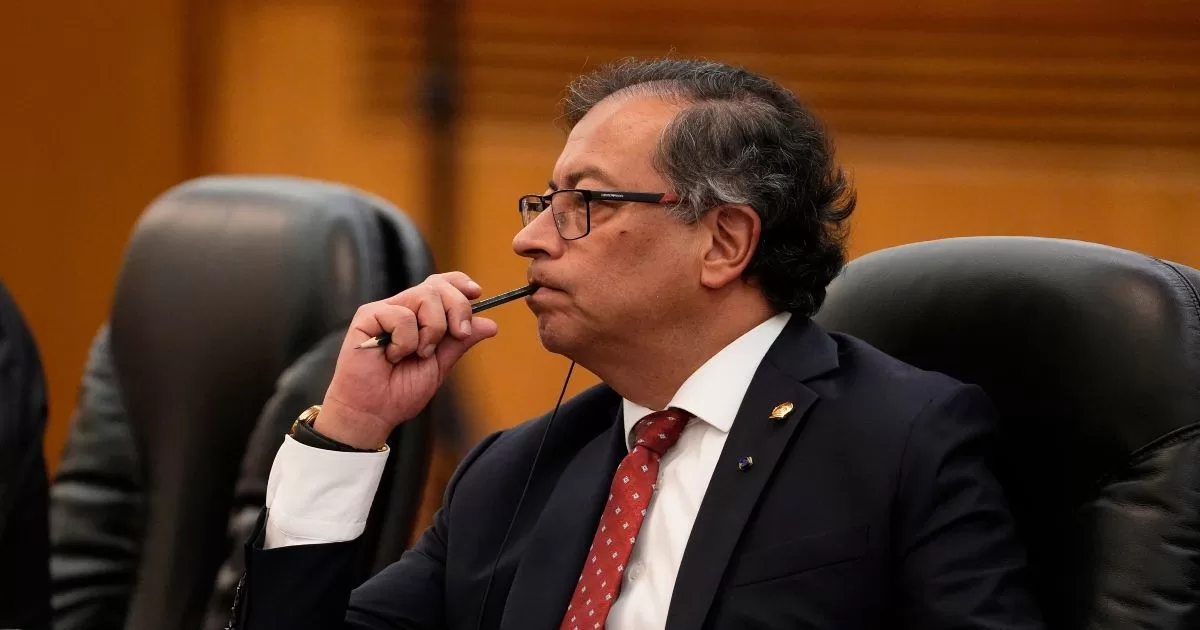In his last public exhibition, Cristina Kirchner reiterated concepts regarding the dollarization, the IMF and the bi-monetary economy. With a lot of data -precise in some cases, inaccurate in others and very free interpretation almost always- she did not surprise in those sections of the dissertation. She herself took it upon herself to point out that she visits these topics regularly.
These are her classic themes with which she enthuses fans who, with authentic loyalty, fill auditoriums, squares and stadiums precisely to hear her reaffirm the convictions of the kirchnerista space and evoke the golden years of the three K mandates.
Like a true celebrity, her fans adore her and she does not disappoint them. She always brings winks, gestures and complicity to the audience to frame her stellar appearances.
In recent years it has consolidated a narrative and a gesture that is immediately multiplied in networks and the media, on t-shirts and posters. In general, he does not stray too far from his comfort zone.
But last Friday, invited to speak on the occasion of receiving the title of Doctor Honoris Causa from the University of Río Negro, she added a novelty to the repertoire: the political fragmentation.
He did so by mentioning concrete risk that Argentina will follow a path similar to that of the Republic of Perua nation that in recent years has multiplied their party spaces repeating in each presidential election the scheme of a first round with a large number of candidates with few votes that later force the citizenry to rule out more than to choose in the balloting.
Invited to speak at the University of Río Negro, Cristina added something new to her repertoire: political fragmentation
Fragmentation and inflation: acute words, serious problems
The fragmentation results are weak executive powers that the constitutional periods do not usually end. It gives an account of this that, among the former Andean presidents, there are renounced, resigned, imprisoned, exiled and even committed suicide.
If CFK, to refer to the government of which he is a part, chooses an external point of enunciation and alien to the management of Alberto Fernández, to refer to the risks of Peruvianization he chooses to position himself from within the political system. Probably few people know as she does the opportunities and risks of atomization of the representation system.
In 2003, accompanying Néstor Kirchner, he observed from a privileged place the advantages that the implosion of convertibility and the “let them all go” could provide a Patagonian governor unknown to a large part of the national public opinion.
The dream of the Casa Rosada was brought forward for her husband, giving birth to a new and disruptive leadership that took away a good part of the constellation of power in force until then.
It is that memory -precisely- that makes her have awareness of current danger: now she is at the heart of the system. Kirchnerism and macrismo represent the establishment for important sectors of the community, especially those who are below the 35-year-old border.
For that 45% of the census, the three K mandates, Macri’s management and the experience of the Frente de Todos represent “politics”, an activity that they severely judge for its stagflationary results.

Cristina Kirchner warned of the possible “Peruvianization” of the Argentine political system
Generic analysis and negative expectations in the short term
His description (with wrong figures and correct conclusions) of a social framework torn to pieces by the difficult coexistence between unionized registered employees (both from the private and public sectors), monotributistas and self-employed, the unregistered, planeros (sic) and the unemployed is assertive and disturbing due to the logical conclusion it entails: the fragmentation from above is nothing more than the reflection of the social fragmentation of the very base of society that the leadership cannot close.
If it went into detail to describe it, it was much more austere when it came to postulating actions and measures. Except for the call to renegotiate the agreement signed with the International Monetary Fund, the rest was a generic message intended to establish a consensus if reality does not allow anyone to build a hegemony.
With the exception of an ambiguously praiseworthy quote for Horacio Rodríguez Larreta, he did not advance much in the field of precision. The difficulty is understandable since he has not been able to agree in these years with his chosen one of 2019 on minimum management issues.
In fact, severely questioned the renegotiation of the debt in dollars implemented by Martín Guzmán, which indirectly implies a criticism of the current administration of the debt in pesos. Perhaps knowing the poisoned number that INDEC brought in terms of inflation is that it did not contribute more than generalities in this regard either.
But the 6.6% in February exceeded the most pessimistic forecasts. The three-digit annual barrier has been formally broken (102.5%) and the forecasts for March are not very auspicious. The famous rabbits in the galley did not work their magic, they only managed to distract a few for a while. Price escalation fragments and unifies at the same time.
There are “four alive” (Cristina dixit) that win, a sector that barely defends itself, others that lose something and many that lose a lot. There you can see its unevenly corrosive character. But it has a unifying element: everyone will agree on their negative expectations about the short term. Bad news to celebrate the first year of the declaration of war against inflation. She wouldn’t be winning.


